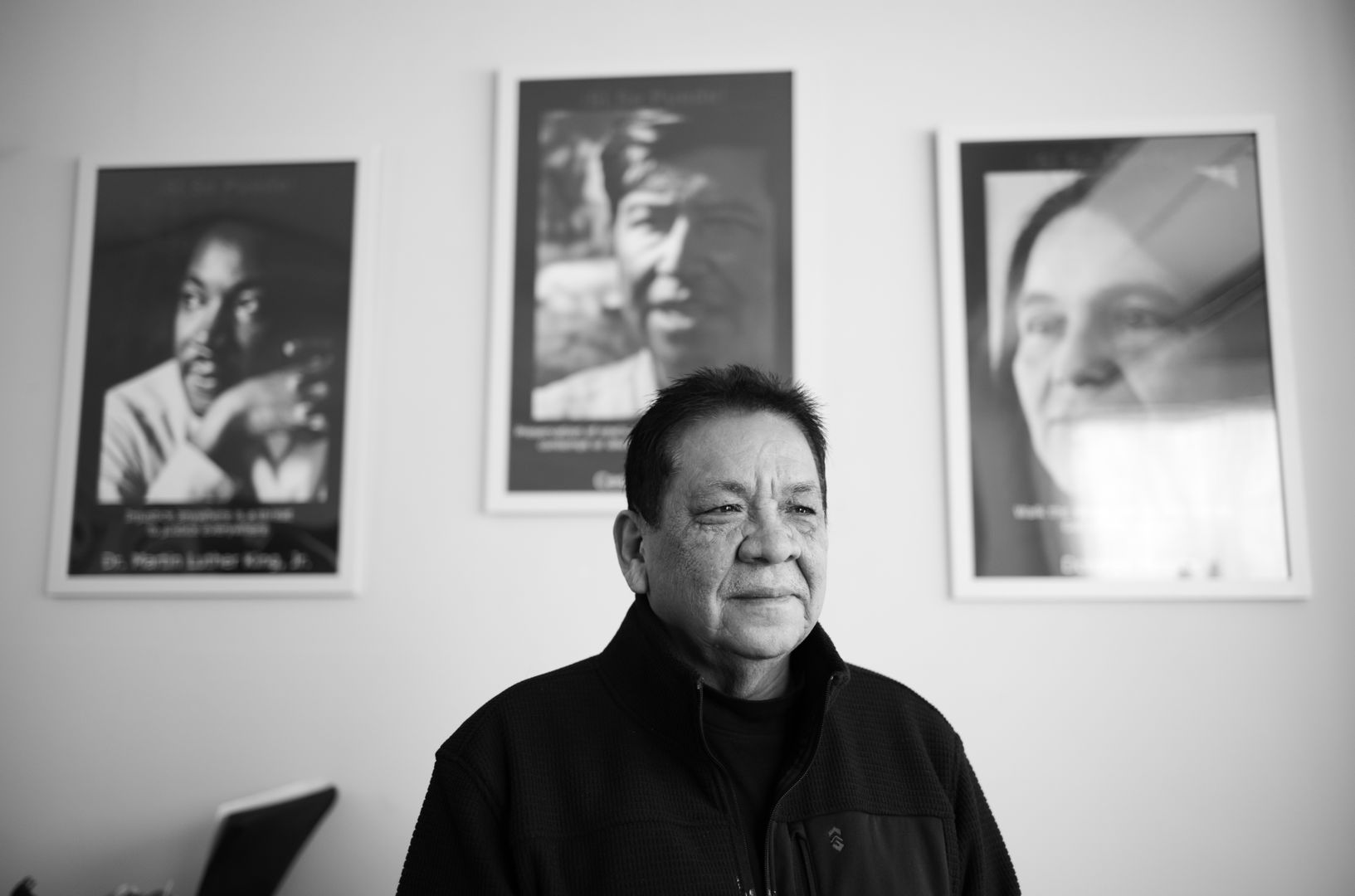I grew up making the decision that I wanted to be a musician. My father and I disagreed, he wanted me to work in the foundries like everyone else. I didn’t want that. I wanted to be what I wanted to be.
The idea of dropping out of high school and putting my focus into music wasn’t easy. In 1970 I put a group together called ‘Mas Caliente’. It wasn’t the idea of conquering music; it was the idea of conquering what my dad didn’t understand. What I wanted to be as a Hispanic person, as a Mexican man.
After 25 years of playing on the road, we decided it was time to come to an end. It was December. I came home and told my wife there was no more music. For the first time, I couldn’t afford to buy Christmas presents. My wife and I heard a knock on the door. There were two ladies that brought us $300 to buy gifts. That night we cried and I asked, ‘How can I ever thank God?’
Then it was the new year. I received a call from the Bilingual Migrant Program offering me a job to help with gangs in schools. This was back in the ‘90s when people were having a hard time with the gangs. Most of the gang members back then were young Mexicans. I didn’t know anything about kids or gangs, but I was well known in the community and they respected me. They wanted to hire me, but I didn’t have an education.
Two weeks after that, I had a job working with the Saginaw Board of Education, without an education. We put a team together with the Bilingual Migrant Program. We were there to engage with the parents and give them some hope. We set them up with programs for their families. We let them know we were working with them and they could come to us in times of struggle. They were afraid to talk. They were afraid to say anything that may get them into trouble.
They began to have faith in me. They knew I would never turn my back on them. They still believed there was hope. That was my goal.
Back in the ‘90s, there was a person who was treated unjustly with his employment, his employer fired him without reason. We all got together and fought for this young man. We didn’t end up winning, but we ended up realizing our people should not be treated this way. That’s how the Mexican American Council started, because of him.
There were five people involved in forming the Mexican American Council. They decided to bring me in because I was involved with the gangs and education.
Things were beginning to change. We began to see our kids in the streets. There were no more migrant workers, or field workers. The younger kids didn’t want those things. Things were changing rapidly and the Mexican American Council saw that.
We began to see it in the ‘90s. These kids that were gang members were being permanently thrown out of school. We put a priority on education. The Mexican American Council made the Chavez Academy School for students. Some of the gang members graduated and went on to college.
After that, the community began to bring issues to us. They began to hold us responsible for taking action on the issues they brought to the table. These are Mexican people who never spoke out because they were afraid. After we established the comfort, they would come in and speak with us privately. Then we would know what actions to take and what doors to open."
- Bobby Deleon, Mexican American Council







